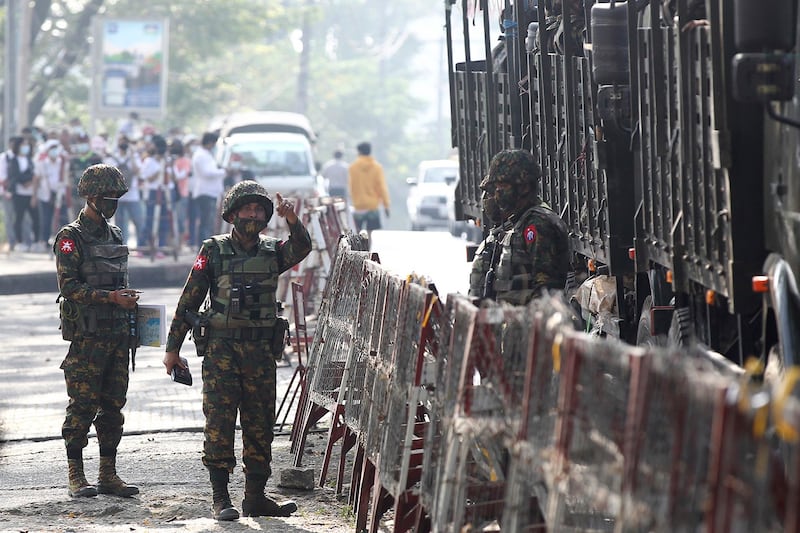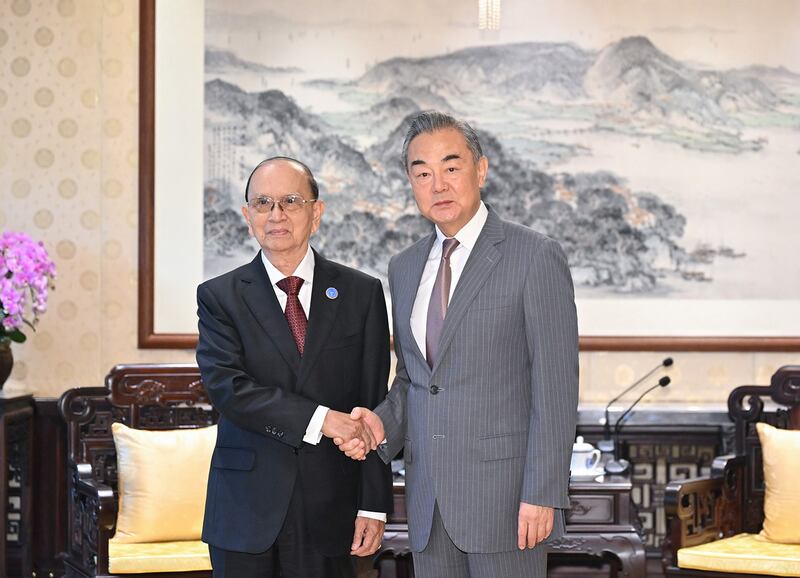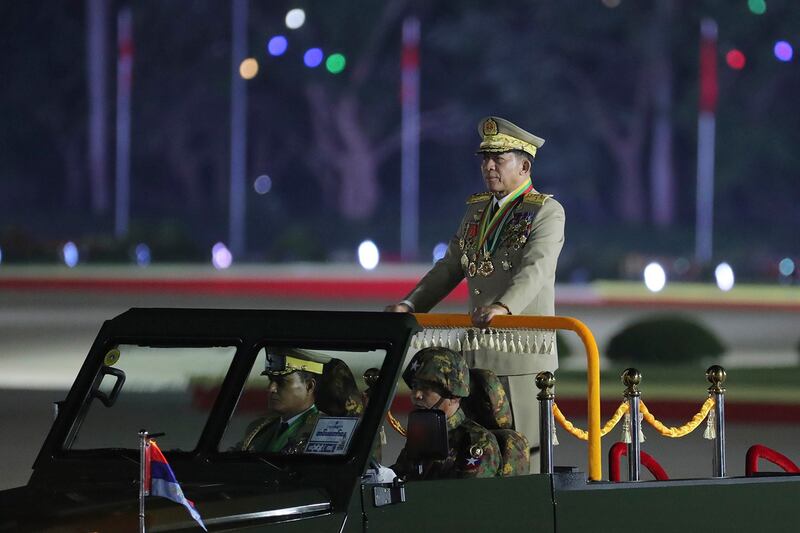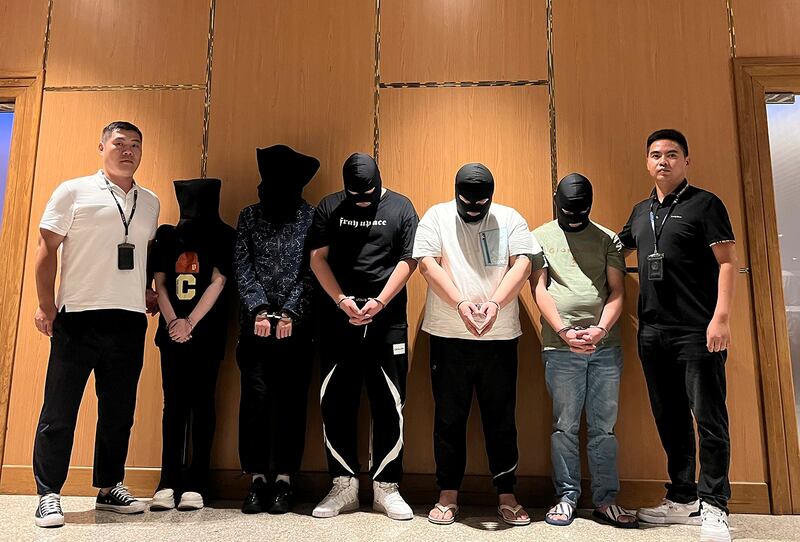Chinese frustration with Min Aung Hlaing appears to be heightening, as the junta prepares to issue another six-month extension of its emergency decree on Aug. 1 and ignores Beijing's calls to seek a political solution.
Beijing has sent multiple signals that this is unacceptable and that the military government must prepare to hold elections as an off-ramp to the political crisis.
While some observers saw Beijing’s hand in Min Aung Hlaing’s seizure of power on Feb. 1, 2021, the coup really went against core Chinese interests, leading to political instability, a breakdown in the national cease-fire agreement, and the further stalling of the key projects Myanmar-China Economic Corridor and port in Kyaukphyu.
Beijing failed to endorse the coup, pressured the junta to not dissolve the National League for Democracy, the then ruling and recently re-elected party of Aung San Su Kyi, and backed ASEAN’s Five Point Consensus for ending the conflict. In March 2022, Beijing appointed a special envoy for Myanmar, Deng Xijun.
By mid-2022, however, it seems as though China had come to the conclusion that the opposition National Unity Government and their alliance of ethnic resistance organizations would be unable to prevail. Beijing stepped up their engagements with the junta.

But even with Chinese diplomatic and political support, the generals were unable to consolidate power. Operation 1027, launched by an alliance of ethnic armies in late 2023, led to the junta’s loss of significant amounts of territory along the border with China in Shan state.
The Kachin Independence Army’s subsequent offensive led it to now control all border crossings in that state.
On Jan. 10, Beijing negotiated a ceasefire in northern Shan state. Yet, the junta continued their air and long range artillery attacks, prompting China, in a show of force, to stage live fire military exercises on the border in April.
Pushing for an off ramp
Frustration with the junta’s military and economic incompetence is mounting.
To be clear, Beijing has never trusted Min Aung Hlaing, whom they are said to view as incompetent and an embarrassment.
Chinese leaders have consistently denied him an invitation since the coup, including to the sparsely attended third Belt and Road Initiative Forum in Beijing in October 2023.
Beijing appears more convinced that Min Aung Hlaing is unable to stabilize the country, no matter what, and has been more vocally pushing for elections as an off ramp to the military’s self-made crisis.
There have been a number of high-level delegations in the past few months.

The one that piqued the most interest was that of former president Thein Sein. In a very obvious slight to Min Aung Hlaing, Thein Sein received an audience with Chinese paramount leader Xi Jinping and was described by foreign minister Wang Yi as an “old friend”.
Despite China’s concerns about Thein Sein’s transition to democracy after 2010, they look back on the former army chief and president as a competent leader who protected China’s interests. This presents a stark juxtaposition with Min Aung Hlaing.
While Singapore's Channel News Asia reported that Wang had conveyed Beijing's call for Min Aung Hlaing to resign, this was never confirmed.
But China has clearly increased its calls for elections to be held this year, and appears to see Thein Sein as an appropriate transitional figure, accepted by the international community and ASEAN in the past.
Pressing for elections
China invited Soe Win – deputy commander of the State Administrative Council (SAC), as the junta calls itself – to the Shanghai Cooperation Organization’s Green Development Forum in early July.
He was the highest ranking SAC official invited to China, though in a multilateral, not bi-lateral setting.
While Soe Win’s goal was to secure further military and diplomatic assistance, Beijing saw the meeting as another opportunity to speak directly to the junta leadership and press for a firm date for elections.
In mid-July, China invited a delegation of political parties, led by the military-backed Union Solidarity and Development Party, or USDP, whose routing in the November 2020 election led to the coup.
But rather than commit to elections, the SAC continues to dither.

On June 25, Min Aung Hlaing announced that the Lunar New Year would become a national holiday – a pathetic attempt to curry favor with Beijing.
The SAC will hold elections only from a position of strength, which is possible only with Chinese military assistance.
According to the UN Special Rapporteur and a forthcoming report from the Special Advisory Council-Myanmar, China continues to sell arms and deploy technicians to Myanmar's military defense industries. It has also provided software and technical support to monitor telecommunications.
Despite Chinese pressure, Min Aung Hlaing shows absolutely no signs of stepping aside.
On July 20, he assumed the acting presidency, in addition to his role as army chief, Prime Minister, and head of the SAC.
RELATED STORIES
[ As Myanmar junta falters, rival ethnic armies jostle in Shan stateOpens in new window ]
[ Myanmar rebels rack up more gains as Operation 1027 enters new phaseOpens in new window ]
[ Myanmar insurgent allies capture strategic Shan state town from juntaOpens in new window ]
[ Ethnic army overruns junta command center in Myanmar’s Kokang regionOpens in new window ]
Enter China’s proxy
Despite Chinese admonishment, the junta is about to extend the emergency decree by an additional six months. There are even some reports that under Chinese pressure, Min Aung Hlaing will cede the acting presidency to Thein Sein in August.
Yet, defying China is unlikely to play well for Min Aung Hlaing.
When Phase 2 of Operation 1027 began in June, China put far less pressure on the Three Brotherhood Alliance, the tripartite insurgent force that has led the campaign. Although China negotiated a ceasefire on July 20, it didn't last a day.
China has held back since then, as the alliance member Myanmar National Democratic Alliance Army took over parts of Lashio and the Ta'ang National Liberation Army took Mogoke.
The junta's air attack on Laukkaing on July 14 is going to antagonize China further.

Rather than the junta, China is increasingly relying on another proxy, the United Wa State Army, to check the Three Brotherhood Alliance's advances.
In western Myanmar, where China’s bid Belt and Road Initiative projects are, China is clearly dealing with the new reality on the ground.
While the Arakan Army has not taken Kyaukphyu, it has effectively surrounded China’s special economic zone in that Rakhine port city. Any future development there will necessarily entail negotiations with the Arakan Army, the third Brotherhood Alliance member..
If there is one area of ongoing cooperation, it’s assistance in shutting down some of the online scam centers and the return of Chinese nationals.
Indeed, between September 2023 and June 2024, 5,482 Chinese citizens were handed over to Chinese police, according to Chinese state media.
Although many of those were handed over by Myanmar police, an increasing number have been handed over by ethnic armies, who are proving themselves to Beijing to be more competent partners than the junta.
China is clearly fed up with the junta.
They will not abandon the regime, despite its losses, and Beijing sees the military as part of a future political settlement.
China is inherently cautious, and its notion of sovereignty as a pillar of international relations makes it very hard for them to abandon Naypyitaw in favor of an opposition government and loose coalition of ethnic resistance organizations.
But China has always had direct relations with the ethnic armies, especially those along its border, and it will continue to leverage those relations to pressure Naypyitaw.
Beijing has made their preference for a negotiated settlement through elections abundantly clear. The only ones who are missing this message are the generals, who are cocooned in their fortress capital and oblivious to their mounting battlefield losses.
Zachary Abuza is a professor at the National War College in Washington and an adjunct at Georgetown University. The views expressed here are his own and do not reflect the position of the U.S. Department of Defense, the National War College, Georgetown University or Radio Free Asia.
